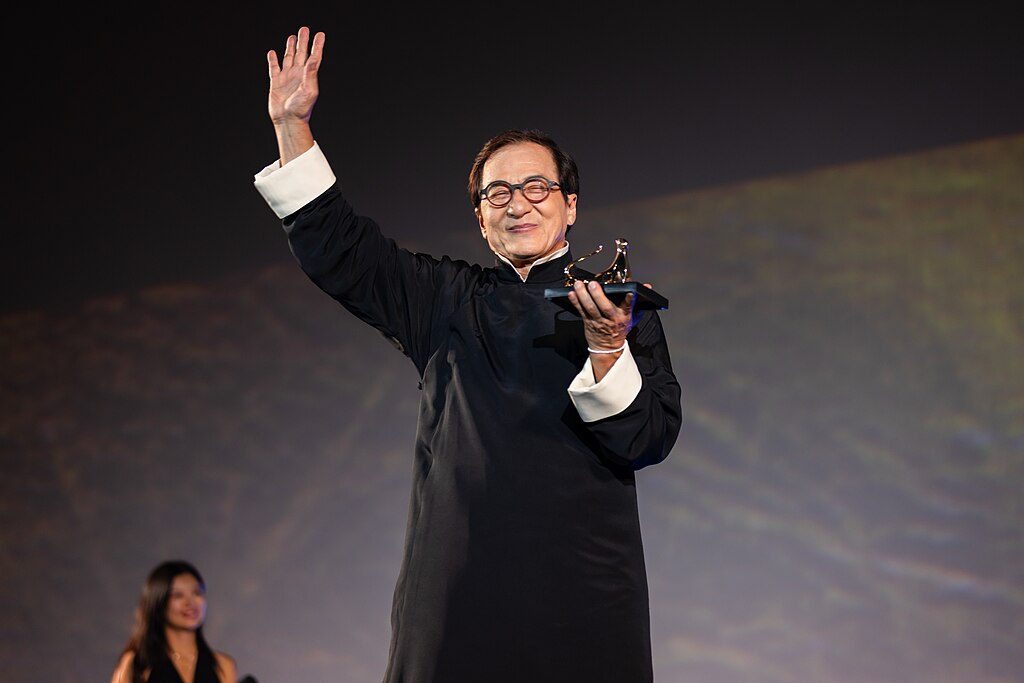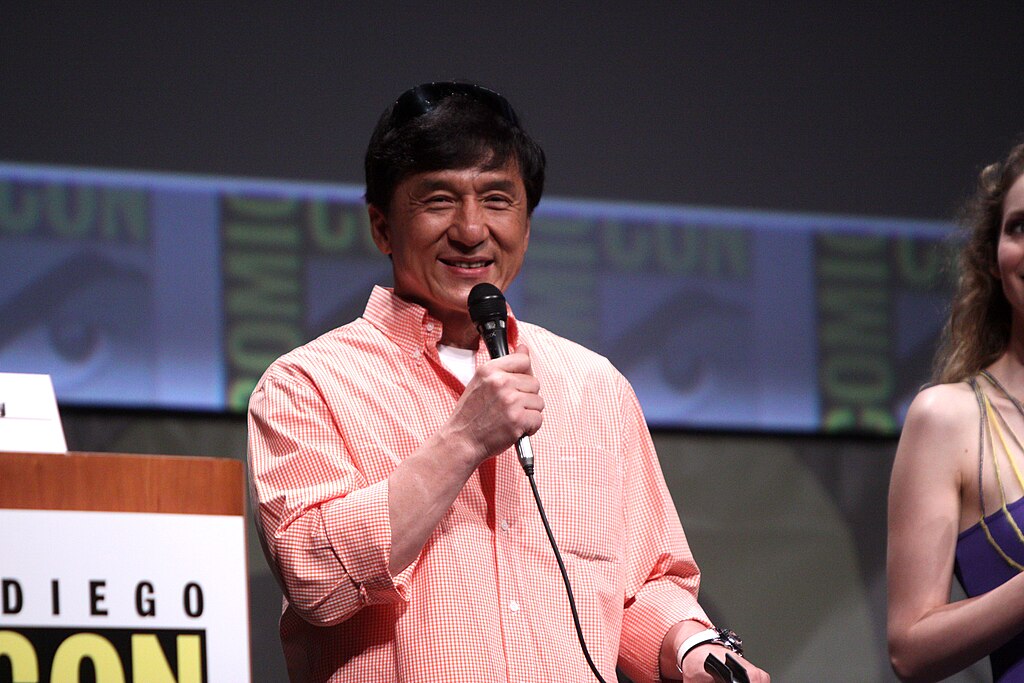Jackie Chan Revealed Shocking Reason His Son Won’t Receive Any of His $400,000,000 Fortune

Jackie Chan is known worldwide for redefining what action cinema could be. For more than fifty years, audiences have watched him turn rooftops into playgrounds, transform danger into comedy, and push the limits of what one human body can endure on screen. His movies have earned billions and his name resonates across continents.
Yet one of his most striking moves isn’t from a stunt reel—it’s a personal choice. Despite his fortune, Chan has decided not to leave his wealth to his only son. Instead, he’s chosen a different kind of legacy, shaped by the lessons of a childhood marked by struggle and a career built through relentless discipline.

The Choice to Withhold—and the Lesson Behind It
Jackie Chan’s estimated $400 million fortune is the kind of number most people could only dream about. Yet his approach to legacy breaks from the expected script. Instead of promising this wealth to his only son, Jaycee, Chan has made it clear that money without effort is meaningless.
Back in 2011, he put it bluntly: “If he is capable, he can make his own money. If he is not, then he will just be wasting mine.”
The comment unsettled many, especially in cultures where inheritance is seen as a parent’s duty. But Chan wasn’t speaking out of anger. His belief is rooted in a philosophy he has carried since his earliest days: true value is forged, not gifted.
Jaycee has walked his own path in music and film, though without the same reach as his father. His 2014 arrest for marijuana possession, which led to six months in prison, underscored the gap between privilege and responsibility. At the time, Jackie Chan—serving as China’s anti-drug ambassador—didn’t hide his disappointment. But even then, his stance wasn’t about punishment. It was about accountability.
And Chan isn’t alone in this perspective. Daniel Craig once called large inheritances “distasteful,” pledging instead to give his fortune away. Ashton Kutcher and Mila Kunis have said they’ll back their kids’ ideas but not hand down trust funds. Shaquille O’Neal told his children directly, “We ain’t rich. I’m rich,” making clear that education and hard work come before entitlement.

What Chan is teaching is simple: money can vanish, but discipline endures. A bank account may open doors, but character decides how far someone walks through them. For him, legacy is not measured in what you leave behind, but in the strength you instill to help the next generation stand on their own.
Discipline, Identity, and the Power of Authenticity
Jackie Chan’s path to fame wasn’t paved with easy opportunities. At just seven years old, he was placed in the Chinese Opera Research Institute, where training was relentless. Days stretched from sunrise to midnight, and weakness was met with punishment. “Every day we would train from dawn to midnight, and anyone caught taking it easy would be whipped and starved,” Chan later recalled. What might sound unbearable today became the foundation of his artistry—the creativity behind the stunts and choreography that would one day redefine action cinema. Even so, he has admitted he would never put a child through the same ordeal.
The industry didn’t welcome him immediately. Early on, producers tried to mold him into another Bruce Lee, casting him in roles that demanded stoicism and intensity. But Chan knew the fit was wrong. “I was contracted to Lo Wei, but he wanted to turn me into another Bruce Lee. I had a different style to Bruce, my own style, so that wasn’t working, and I was looking to make a change.” That decision to step away from imitation and embrace his unique rhythm—part comedy, part chaos, part daring precision—changed everything.
Once he claimed his own identity, success followed. In Hong Kong, he became the highest-paid actor, famous for designing his own fight scenes and performing stunts that others wouldn’t dare attempt. Yet cracking Hollywood proved harder. Films like The Big Brawl and The Protector stumbled, in part because directors refused to give him creative control over the action he had mastered. But persistence paid off. Rumble in the Bronx in 1995 gave him traction, and three years later, Rush Hour made him a global star. The film’s success wasn’t just about ticket sales—it showed that authenticity transcends borders.
Chan’s journey reveals a simple truth: when you stop copying others and fully embrace who you are, you unlock a power no one else can replicate.
More Than Movies: The Business of Jackie Chan
Jackie Chan’s story is often told through fight scenes and stunts, but his greatest leap may have been outside the screen—into the world of ownership and strategy. By 2025, his net worth is estimated at $400 million (Celebrity Net Worth), built not only on decades of acting but also on production, endorsements, and calculated business moves.
Chan learned early that true influence comes when you stop being just the talent and start controlling the platform. By the early 2000s, he wasn’t only starring in films; he was producing and directing them, ensuring he received a share of profits rather than just a flat fee. For Rush Hour 2 and Rush Hour 3, he reportedly earned $15 million upfront for each film plus 15 percent of gross earnings, bringing in more than $126 million from those two sequels alone.

His business sense had been evident even earlier in Hong Kong. By the mid-1990s, media reports noted that he was commanding around 30 million Hong Kong dollars—roughly $4 million USD—per film, plus a cut of the box office. He didn’t just play the game; he changed the terms of it.
Outside of film, Chan turned his name into an ecosystem. He built the Jackie Chan Stunt Team, a group of martial artists who have supported his films and extended his brand. He licensed his name to gyms and clothing lines, created merchandise, partnered with global companies for endorsements, and invested in real estate across Asia.
Even in his seventies, the results speak for themselves. Forbes listed him among the world’s top 100 highest-paid celebrities in 2020, reporting $40 million in annual earnings. That kind of longevity is rare in entertainment—and it shows that his fortune wasn’t an accident.
Chan’s wealth is less about luck and more about vision. He didn’t just act; he owned. He didn’t just perform; he built. And in doing so, he turned creativity into a structure that continues to pay dividends long after the credits roll.
Redefining Legacy: Building Systems, Not Just Fortunes
For Jackie Chan, legacy isn’t about passing down money—it’s about passing forward opportunity. While many expected his fortune to flow directly to his family, Chan has instead directed much of his resources toward charity, especially in education and disaster relief.
His giving began early. In 1988, he founded the Jackie Chan Charitable Foundation to provide scholarships, medical aid, and emergency support for vulnerable communities across Hong Kong and Asia. Forbes once described him as “philanthropy’s hardest-working man,” noting the foundation’s mission to “offer scholarships and other help to young people.”
Years later, he expanded this work with the Dragon’s Heart Foundation, launched in 2004 (some reports note 2005). The organization has built schools—around 20 in rural China—while also supporting elderly residents and stepping in during disasters like the Sichuan earthquake.
His reach extends globally as well. Since 2004, Chan has served as a UNICEF Goodwill Ambassador, using his platform to champion children’s rights, education, and recovery efforts in communities hit hardest by crisis.
Taken together, these efforts reflect more than generosity. They reveal a philosophy: wealth is temporary, but systems endure. By funding schools, infrastructure, and humanitarian programs, Chan has chosen to leave behind something far greater than financial inheritance—he is investing in futures that continue long after his own story ends.
Lessons in Legacy: What Jackie Chan’s Choice Teaches Us
Jackie Chan’s stance on inheritance is less about money and more about principles. These lessons extend beyond celebrity wealth and can guide how we approach family, work, and community.
- Value effort over entitlement
Real confidence comes from achievement, not gifts. Create conditions where success must be earned—it builds strength that handouts never can. - Offer support without creating dependence
Being present doesn’t mean providing unlimited resources. Chan drew boundaries while still remaining involved. That balance is a healthier model of care. - Live your values through action
People remember what you do more than what you say. Discipline, consistency, and resilience shown in daily choices are the real lessons passed down. - Redefine what it means to leave something behind
Legacy is more than inheritance. Directing resources toward education, community projects, or mentorship often carries a longer reach than wealth alone. - Hold others accountable with compassion
Accountability doesn’t erase love. When Chan voiced disappointment in his son, it came with standards—not rejection. Boundaries can coexist with care. - Teach wealth management, not just wealth transfer
If financial inheritance is part of the plan, pair it with financial literacy. Without knowledge, even the largest fortune is fragile. - Choose integrity over imitation
Chan’s success came when he stopped trying to be the next Bruce Lee and leaned into his own style. True achievement comes from living aligned with your own values, not society’s mold.
Beyond Wealth: The Legacy We All Carry
Jackie Chan’s story reminds us that legacy is not measured in numbers but in values. Money can disappear. Fame can fade. What remains is the discipline you model, the boundaries you uphold, and the opportunities you create for others to grow.
His choice to invest in communities rather than inheritance challenges us to rethink what we leave behind. Are we passing down comfort—or are we passing down courage? Are we giving people shortcuts—or are we giving them strength?
You don’t need a $400 million fortune to live this philosophy. Every time you teach instead of hand over, every time you choose accountability over indulgence, every time you build something that serves more than yourself, you are shaping a legacy that lasts.
True inheritance is not money—it’s character. And that’s something no one can waste.
Featured Image from Walid Farouk, CC BY-SA 4.0, via Wikimedia Commons
Loading...

